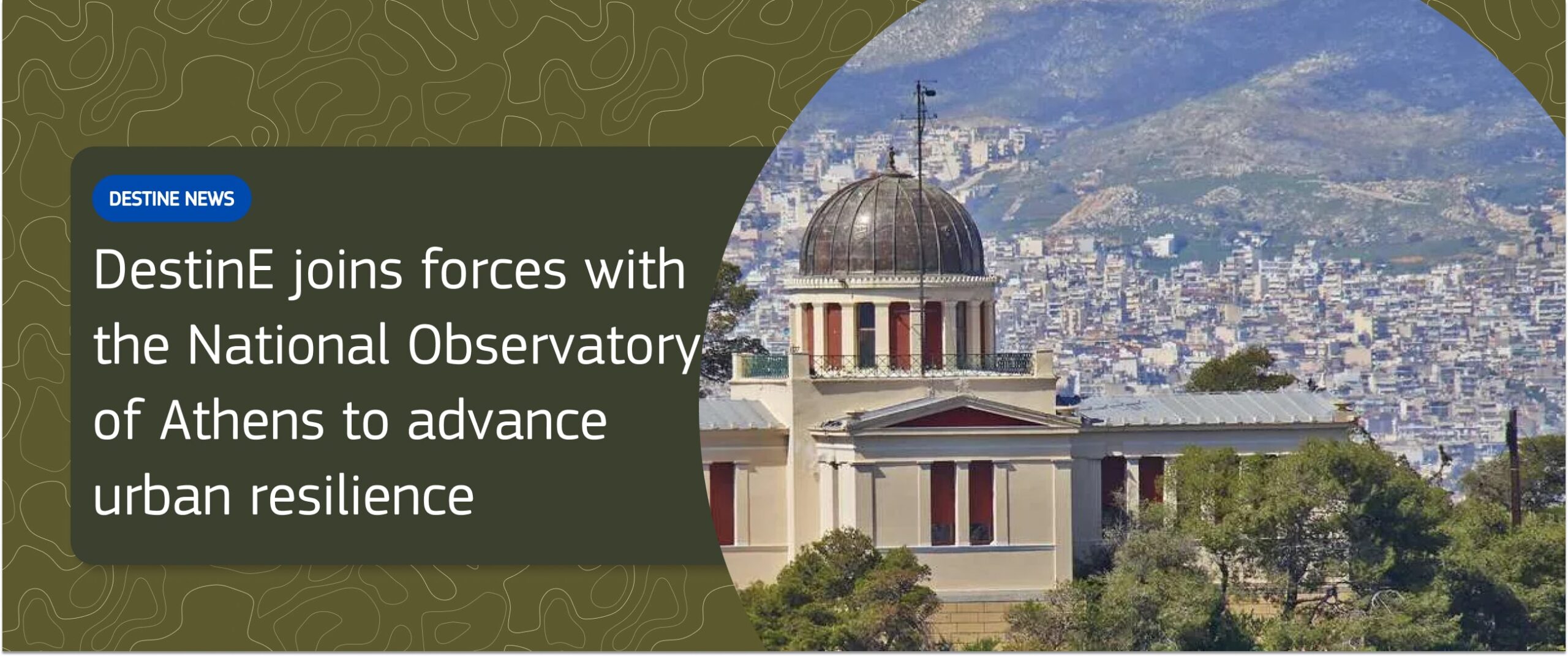DestinE joins forces with the National Observatory of Athens to advance urban resilience

A new Destination Earth (DestinE) partnership project integrating DT-HEAT+, a digital twin-based service designed to predict heat-related mortality in urban areas, into the DestinE service platform has been formalised via a Letter of Intent between the National Observatory of Athens (NOA) and ESAEuropean Space Agency, ECMWFEuropean Centre for Medium-Range Weather Forecasts More, and EUMETSATEuropean Organisation for the Exploitation of Meteorological.
The concept was initially developed by NOA during the 2nd DestinE innovation challenge, where it was recognized as the Most Promising Proposal.
DT-HEAT+ responds to the growing threat of extreme heat in cities by providing next day estimates of heat-related mortality. It applies a Deep Learning model trained on high-resolution environmental data and diverse urban indicators to accurately predict heat outcomes during summer months and heatwave events.
The collaboration brings together NOA’s scientific leadership with DestinE’s advanced computing infrastructure, services and processing capabilities – paving the way for DT-HEAT+ to evolve into a scalable tool for city authorities, policymakers, and emergency response teams.
Data sources include:
- ERA5 Reanalysis: Historical daily environmental parameters (e.g., air/land temperature, relative humidity, wind).
- Weather forecast data from NOAA’s Global Forecast System (GFS) and Academy of Athens (specific to Athens).
- DestinE Digital Twin datasets from the Extremes and Climate Digital Twins.
- Mortality data attributed to heat.
The collaboration will follow a shared roadmap, with partners jointly defining technical requirements, assessing feasibility using DestinE’s resources, and outlining a path to operational deployment.
Regular coordination will support alignment, knowledge exchange, and continuous progress monitoring, laying the foundation for a robust and scalable solution that delivers real societal value in the face of climate-driven urban heat challenges.
The first cities supported by DT-HEAT+ are the metropolitan areas of Athens and Prague, with the ambition to expand its reach and demonstrate its transferability and impact across diverse urban contexts and climate conditions.
The collaboration also contributes to NOA’s work within the EU-funded CARMINE project (Climate-Resilient Development Pathways in Metropolitan Regions of Europe; Funded by the European Union; GA 101137851).